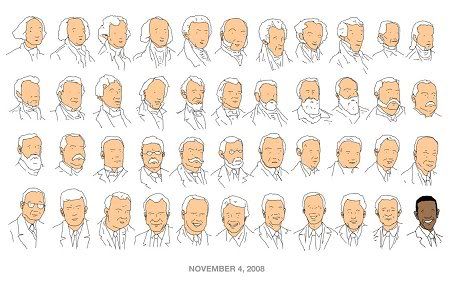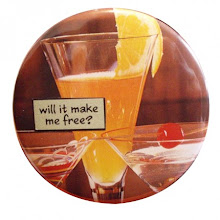(continued from this post.) As you know, Bob, culture shock is a central component of the study-abroad-experience. Still, my own personal culture shock is shaped by the fact that I spent the last four years living in one of these:

The 1500 students at
my liberal arts college were far from univocal when it came to identity politics, but we all had a sense of common ground to push off of in our disagreement, including a mostly-shared conception of tolerance and more-or-less similar ways of conveying respectful disagreement. Predictably enough, now that I'm out of the bubble (and outside my national bubble, and lately outside of the academic bubble) I've been finding myself frustrated with the rift between the assumptions I make and those that some of my Israeli partners in conversation make when we talk about identity politics.
What to do? I went to the HUJI library and checked out this book that my college thesis advisor wrote, called
Tolerance: Between Forbearance and Acceptance.

Did you need any confirmation that I'm a philosophy dork? Now you have it.
When people find out that I study philosophy, they'll often ask what I plan to do with my education. I have a few canned responses to those kinds of questions — most of which are just cheerful concessions — but the most honest response is that philosophy clarifies my understanding of my circumstances in a way that is very important to me. The experience of reading this book here in Israel has offered me a great reminder of how important a role philosophy plays in my personal life.
A few encounters with rough edges of Israeli culture — especially in conversations about identity-politics — have left me struggling to find a balance between respect and resistance. It's sort of like learning personal-space boundaries in a new culture (how far to stand from someone when you're having a conversation, or how long to hold a handshake). Except in this case, I'm learning how far to stand from my own heart, and how much to thicken my skin, cool my blood and respond indifferently to (what-strikes-me-as) prejudice or intolerance. [
Ruth blogs a similar struggle in Syria.]
The frustration and disappointment that I feel after these sorts of encounters has been hugely compounded by the fact that I don't know what kind of behavior I expect from myself in a situation like that. It's one thing to make judgments and keep them to myself. But the whole
mutual-understanding-between-cultures thing seems to demand that I refrain from imposing my culture's value judgments on others. How can I refrain from making judgments without betraying my moral commitments?

And that's where this book comes in. I'm just going to be self-indulgent and quote it at length, because this particular section helped me so much to understand where my frustration was coming from, and where I hope to go from here.
To be fully tolerant does not entail that we cannot have critical reactions to the content of the attitudes, thoughts or conduct of those tolerated. All forms of tolerance necessitate having critical reaction to that which we tolerate. Otherwise, we would be either totally indifferent, complacent, world-weary, or fully accepting. Nor should "critical reactions" be limited to private, unexpressed responses. The fully tolerant do not — as do the barely and merely tolerant — deny themselves the opportunity, even the responsibility, of critically engaging those whom they tolerate, for the fully tolerant value more than that one lives one's own life. [...] It is enormously important that one's life has value, not merely that it is one's own.
Because those with a liberal temperament value individuals trying to live out their own conceptions of a good life, we might sometimes help individuals and groups pursue their good even when we find it deficient in various ways. [...] Full tolerance, therefore, involves a deep respect for the individuals and communities whose life projects are different from on's own, even where one disapproves of elements in it, even thinks that it is a generally inferior way to live. Full tolerance is not acceptance. The fully tolerant recognize, however, that it is usually difficult to remove objectionable elements from a system without destroying the whole. They will be acutely aware of what I call the "Sweater Principle": We sometimes pull on an offending bit of thread marring our sweater only to find a shapeless heap of yarn at our feet.
The fully tolerant, finally, recognize that there can be much good — though a diferent good — in attitudes, beliefs, and ways of life that we ourselves do not find congenial. It is not htat we do not see what is regrettable, say, about an Amish way of life. We see that all too clearly.What we may overlook are the incredible strengths in that way of life, the values — again, perhaps markedly different from our own, maybe even in competition with them — that it instills. Their way of life is not ours, but we see that it enables Amish to live rich, constructive live. This does not mean that the Amish themselves are imbued with a liberal temperament. Having a liberal temperament is neither a necessary nor a sufficient condition for living a worthwhile life. Having a liberal temperament, however, can help one see the value in ways of life and systems of belief that are not, themselves, liberal in any respect.
(Hans Oberdiek, Tolerance)

 The rest of the way home, I reflected on the way that I experience and process potential threats. Lots of times I've been on a bus and heard a loud bang, or walked along a road and had a guy yell at me from a car window. I get a rush of adrenaline and time slows down until the apparent threat dissolves. And then I take a moment to think about what I would have done, and I realize that there's no answer. Even if I recognized an attacker before he confronted me, I would still not be able to protect myself.
The rest of the way home, I reflected on the way that I experience and process potential threats. Lots of times I've been on a bus and heard a loud bang, or walked along a road and had a guy yell at me from a car window. I get a rush of adrenaline and time slows down until the apparent threat dissolves. And then I take a moment to think about what I would have done, and I realize that there's no answer. Even if I recognized an attacker before he confronted me, I would still not be able to protect myself.

























